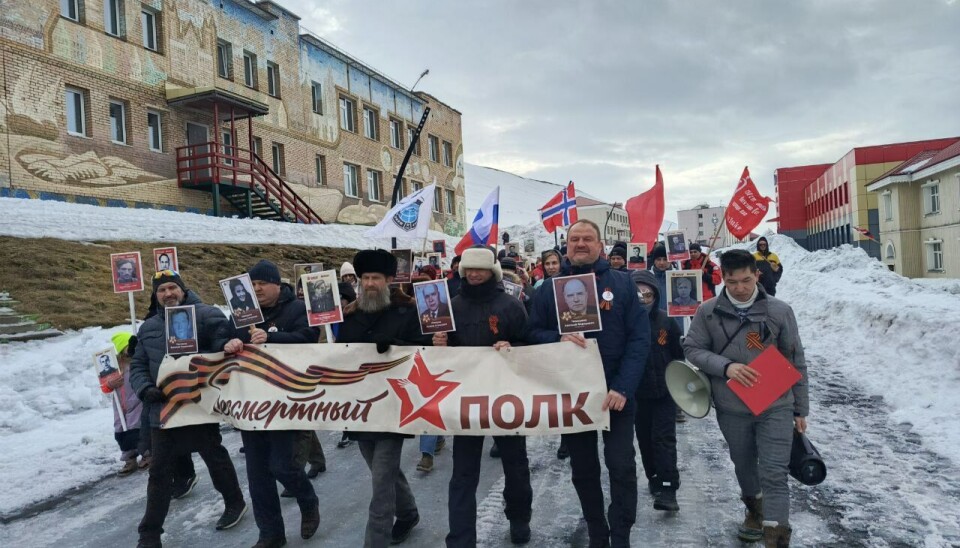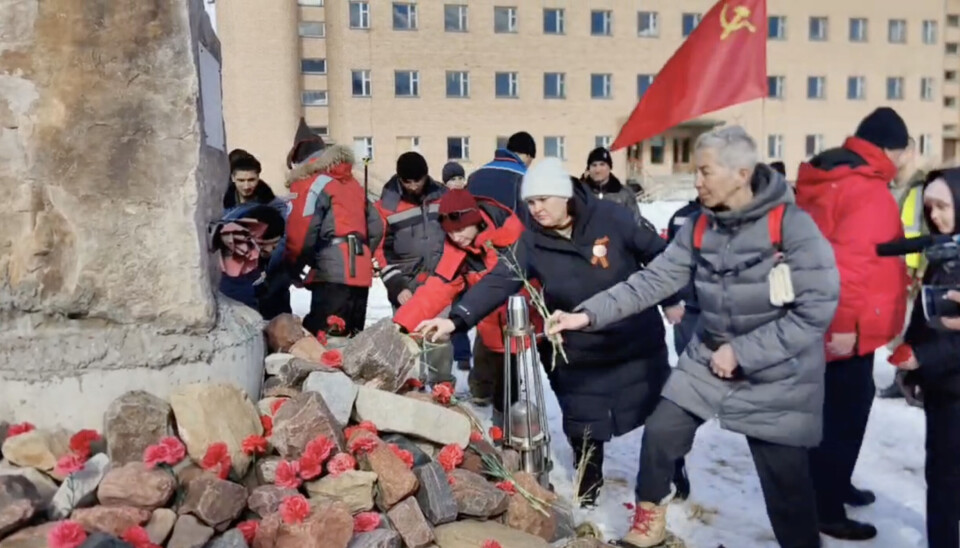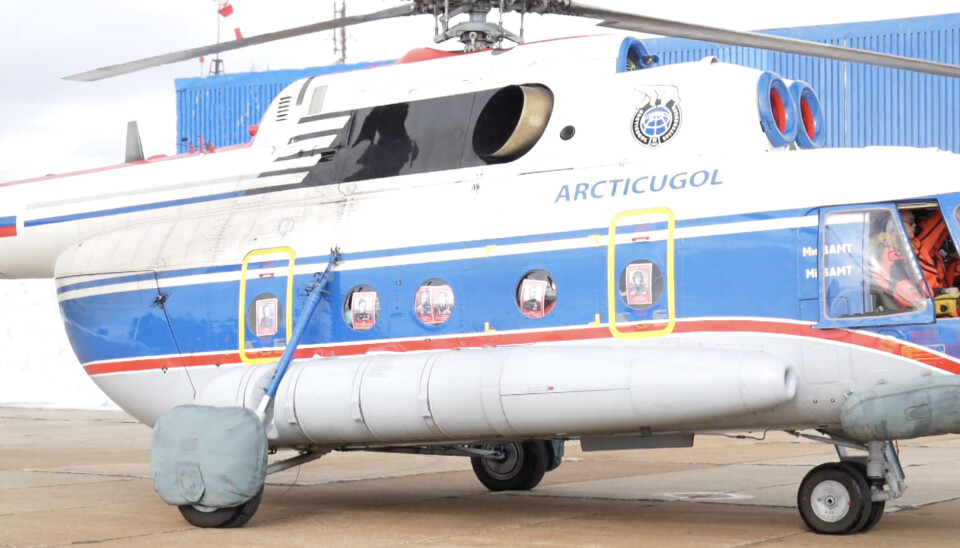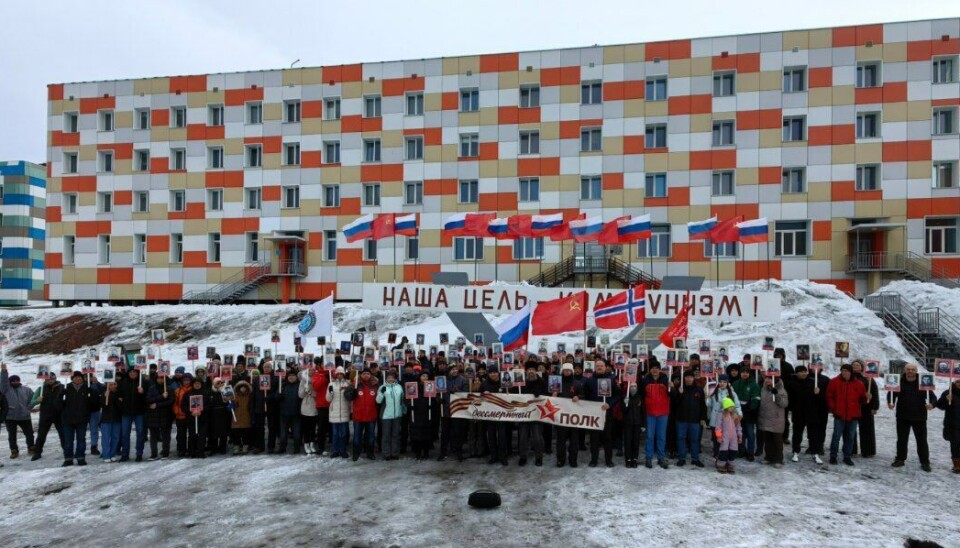
Militarized memory: Kremlin-orchestrated ‘Immortal Regiment’ rally on Svalbard
"The celebrations are not about commemorating second world war, but about justifying the present Russian warfare in Ukraine," says professor of Russian history Kari Aga Myklebost with UiT The Arctic University of Norway.
Soviet war songs were played as half of the population in the Russian mining settlement of Barentsburg walked in procession with photos of dead soldiers, flags and ribbons of St. George, which many Ukrainians consider a symbol of Russian aggression and which has been banned in several European countries.
The event on May 9 was organized by Trust Arktikugol, the state-owned company running all Moscow's businesses on Svalbard. In Barentsburg, few people have courage to stand up against the man who led the procession, Ildar Neverov. He was sent sent to Svalbard as CEO of Arktikugol by Moscow after the full-scale invasion of Ukraine in 2022.
It was also Arktiugol that printed all posters with photos of dead soldiers, according to the Telegram channel Novosti Spitsbergen.
Additional to the procession in Barentsburg, the Arktikugol packed its helicopter with participants and flew to Pyramiden where another 'Immortal Regiment' march took place up the main (and only) street in the ghost town where Russia nowadays aims to boost tourism.
Although no Soviet soldiers where killed on Svalbard during second world war, memorial flowers were laid at the monument of miners killed in the numerous accidents during the years when digging of coal out of the permafrost took place.

Russia's use of the helicopter for non-mining related flights on Svalbard is controversial. After flying low over a military-stylish parade in Barentsburg on May 9 in 2023, the airliner was fined by the Norwegian authorities for violating aviation regulations.
This year, before take-off from its base at Kap Heer, all passenger windows, including the emergency exits, were covered with photos of dead Soviet soldiers, allegedly as part of a flying 'Immortal Regiment' to Pyramiden.

"These Kremlin-orchestrated propaganda events are the result of an increasingly ideologized Russian public sphere and Moscow’s desperate need to showcase popular support for the brutal warfare in Ukraine," says professor of Russian history, Kari Aga Myklebost with UiT The Arctic University of Norway.
Professor Myklebost has for years studied Moscow's provocative use of hybrid operations at Svalbard.
"The 'celebrations' are not about commemorating WWII, but about justifying the present Russian warfare in Ukraine," she explains.
Myklebost says the staged Svalbard events on 8 and 9 of May by the Russian Consulate General and Trust Arktikugol have parallels in multiple places around the world where the Russian Foreign Service operates.
"Victory Day is one of Putin’s most important propaganda tools, as it resonates with the Russian public and serves to create powerful enemy images," the Tromsø-based professor says.
While Russia's Consul General at Svalbard together with the CEO of Arktikugol led the processions in Barentsburg and Pyramiden, Vladimir Putin was overseeing the Red Square parades in Moscow, featuring heavy military equipment.
In many other Russian cities, like in Arkhangelsk, participants in the 'Immortal Regiment' carried Z-marked photos of soldiers sent to be killed on the bloody battlefields in eastern Ukraine after 2022.
The geopolitical messaging from the Red Square was clearly showcasing Russia's will and capacity to wage war and fulfil its ambitions of toppling the unipolar world order.
According to Dr. Jade McGlynn, who is author of “Memory Makers: The Politics of the Past in Putin’s Russia”, the occupying forces have desecrated the Victory banners of 1945 by raising them over destroyed Ukrainian cities and comparing the annihilation of peaceful civilians to the defeat of Nazism.
“To stand beside the Russian state’s commemorative apparatus is not to honor those who fought against fascism. It is to degrade their memory,” McGlynn writes in an opinion editorial for the Moscow Times.
Kari Aga Myklebost believes the staged events on Svalbard are intended to provoke reaction from Norway.
"It can be used as pretext to accuse Norway of Russophobia and discriminating against Russians," she says.
"Pressuring Norway by way of various accusations is a long-standing Russian strategy in Svalbard, to influence and limit Norwegian policymaking. Since 2022, orchestrated Russian provocations, or hybrid attacks based on narratives of Russian historical presence in Svalbard, have been performed regularly on the archipelago. This is authoritarian Russia deliberately making use of the freedom of expression and assembly in Norway to promote its militaristic and revanchist policies while at the same time aiming to stir tensions in Svalbard and in Norway at large."
Myklebost adds: "No doubt the Victory Day events in Svalbard will be disseminated in propaganda videos and posts in social media by the Russian Ministry of Foreign Affairs together with similar staged celebrations from around the world, to create an illusion that the Russian diaspora loyally supports the Kremlin and its war of aggression in Ukraine. We have witnessed this kind of cynical use of Russians abroad for several years now."

















